Advice, Challenges, and Inspiration from the Women of Cultivation
The cannabis plant is an expression of feminine energy in its purest form. The industry remains male-dominated, much like other agricultural sectors, with only 17 percent of women in cannabis working in cultivation according to the Women in Cannabis Study. However, there are more women growers making waves in the industry today than ever before.
We spoke with a few of these trailblazers to learn more about what inspires them, the challenges they face, and their advice to the female farmers of tomorrow.
Tina Gordon, founder and owner, Moon Made Farms, California
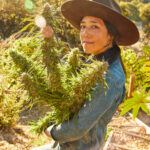
Tina Gordon found herself in the Emerald Triangle 15 years ago as part of a documentary film crew. Inspired by the majesty of the plant’s full expression, she felt called to cultivate full-time and soon made Northern California her home. Gordon quickly became a staple of the Humboldt County community, advocating for legacy growers throughout the region. A Sun + Earth certified operation, Moon Made Farms is focused on regenerative agriculture that harnesses lunar energy.
What do you love most about cultivating cannabis?
“Cultivating cannabis has completely changed my life, altered my perspective about living systems, and awakened me to living on a living planet. It’s a daily inspiration to continue moving forward to share this experience with others.”
What is the biggest challenge?
“The greatest challenges we face as cultivators are the greatest gifts, which stem from working with nature. Nature is all powerful and it’s our job and our role to respond to the natural forces to cultivate these plants in harmony with daily subtle natural shifts across all forces.”
“As a cultivator as a career and vocation, our greatest challenges continue to be federal prohibition and state regulations that limit our access to doing business and being a functioning business. As regenerative sungrown craft cultivators, our audience is presently limited as indoor and massive outdoor have become industry standards. I’m interested in seeing increased public access to quality craft cannabis that will provide people with the highest possible benefits.”
Dr. Jade Stefano, co-founder, CEO, and medical director, Puffin Farm, Washington
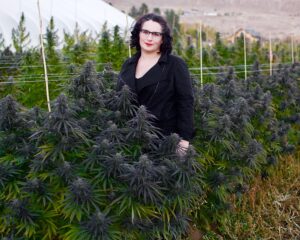 Dr. Jade Stefano has a love of all plants — but cannabis is her true passion. A biologist and physician by trade, Stefano understands firsthand the incredible healing power of the crop she holds so dear. Citing Hindu Kush as her favorite cultivar to grow thanks to its delectable aroma, high yields, and pretty purple hue, Stefano has made it her mission to deliver sustainably sungrown flower to the masses with Puffin Farm, encouraging those who can to grow their own to fully appreciate the plant.
Dr. Jade Stefano has a love of all plants — but cannabis is her true passion. A biologist and physician by trade, Stefano understands firsthand the incredible healing power of the crop she holds so dear. Citing Hindu Kush as her favorite cultivar to grow thanks to its delectable aroma, high yields, and pretty purple hue, Stefano has made it her mission to deliver sustainably sungrown flower to the masses with Puffin Farm, encouraging those who can to grow their own to fully appreciate the plant.
What advice do you want to share with other women growers?
“For women interested in starting up commercially, it is important to be realistic about costs and prices to be expected in a regulated market. The costs will be way over your initial estimates and the price you receive will be way under. We are seeing this play out in multiple states. The demand for craft products has not yet matured, making small and medium-scale craft production difficult to sustain. It is important to have excellent branding and to be prepared for a long haul roller coaster ride commitment.”
Dr. Natasha Khallouf, DAOM, founder, CEO, and farmer of Agricola Flower and Nursery
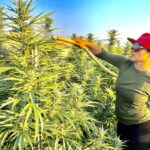 As a student of Chinese medicine, Dr. Natasha Khallouf has centered her entire life around the incredible healing power of herbs and botanicals. A migraine sufferer, Khallouf discovered cannabis could ease her pain and soon realized there were countless others who could benefit from the plant. She contributed flower to a collective of over 3,000 patients in Los Angeles during the heydey of medical cannabis in California, eventually settling in Santa Rosa where she started Agricola Flower and Nursery. Khallouf’s favorite strains to grow are “predominantly sativas because they are ‘of the field’ as they say in the herbal medicine world,” and is well known for her delectable Strawberry Cough plants.
As a student of Chinese medicine, Dr. Natasha Khallouf has centered her entire life around the incredible healing power of herbs and botanicals. A migraine sufferer, Khallouf discovered cannabis could ease her pain and soon realized there were countless others who could benefit from the plant. She contributed flower to a collective of over 3,000 patients in Los Angeles during the heydey of medical cannabis in California, eventually settling in Santa Rosa where she started Agricola Flower and Nursery. Khallouf’s favorite strains to grow are “predominantly sativas because they are ‘of the field’ as they say in the herbal medicine world,” and is well known for her delectable Strawberry Cough plants.
What advice do you have for new women growers?
“Never do anything just for money. Do it for the love. Get really comfortable with being alone and you will never be lonely, and see the company of those that don’t deserve your presence. Devote time to learning your craft, spend time with mentors, elders, and people who are passionate about sharing their love of the plant. Learn how to do hard things you thought you couldn’t do.”
What are the biggest challenges for cultivators like yourself?
“Most of us family farmers are self-funded and land access is a major issue that affects minorities such as myself with limited or no intergenerational wealth.
“Those with investment funds often have that bit of cushion that will see them through when the going gets really hard. And it’s currently really hard. I shed tears the other day when I read that the only other licensed female family farmers in my county had thrown in the towel. I am now the longest-running permit in my county and the only licensed female. Some might be proud but I am sad to hold this title.”
Bridgette Ponder, owner and master grower, Grounded Gardens, Minnesota
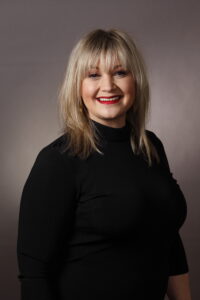 People may not think of the Midwest as a bustling cannabis community, but Minnesota-based Bridgette Ponder and Grounded Gardens beg to differ. The hemp cultivator comes from a long line of farmers and after 20 years of fighting for reform in the shadow of the underground market, she finally decided to grow her own. Ponder wants the world to know that her lanky outdoor CBD and CBG hemp plants are just as beautiful and fragrant as their THC-rich cousins, offering a world of relief to those who need it most.
People may not think of the Midwest as a bustling cannabis community, but Minnesota-based Bridgette Ponder and Grounded Gardens beg to differ. The hemp cultivator comes from a long line of farmers and after 20 years of fighting for reform in the shadow of the underground market, she finally decided to grow her own. Ponder wants the world to know that her lanky outdoor CBD and CBG hemp plants are just as beautiful and fragrant as their THC-rich cousins, offering a world of relief to those who need it most.
What inspired you to start growing?
“Buying cannabis on the legacy market you don’t always know what you’re getting and how it was grown. I want to help others through cannabis, and cultivating is the first step to making complete seed-to-shelf products without any chemicals. I like to look at it like the farmer’s market model of cannabis: know your farmer, so you know what’s going in and on your body!”
What advice do you have for women who may be interested in cultivation?
“Just start! Don’t let anyone tell you that you can’t do something you want to. Start small and build over the years. The plant will tell you what it needs: learn to read the leaves and the plant, and research what it is telling you.”
Selena Rowan, CEO and chief herbalist, Midnight Gardens
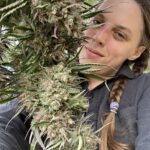 Growing cannabis is in Selena Rowan’s blood. Her mother received one of the nation’s first permits to cultivate medical marijuana in 1974, and she came of age in the mountains of Santa Cruz where cannabis culture runs deep. Trained in clinical herbalism and Ayurveda, Selena believes the plant is a “gateway herb,” leading people to connect with the earth in ways they hadn’t before. Midnight Gardens, a Cooperative Agriculture Network farm, is dedicated to heirloom genetics, biodiversity, and time-honored traditions.
Growing cannabis is in Selena Rowan’s blood. Her mother received one of the nation’s first permits to cultivate medical marijuana in 1974, and she came of age in the mountains of Santa Cruz where cannabis culture runs deep. Trained in clinical herbalism and Ayurveda, Selena believes the plant is a “gateway herb,” leading people to connect with the earth in ways they hadn’t before. Midnight Gardens, a Cooperative Agriculture Network farm, is dedicated to heirloom genetics, biodiversity, and time-honored traditions.
What inspired you to start growing?
“When I moved to Humboldt in 2006 at age 19 with my partner, our goal was to learn from the elders of the back-to-the-land movement — we wanted to learn how to create a way of living that increased the earth’s capacity to sustain life, and cannabis was a teacher for us and also like a loving parent who took care of us during that time.”
What advice do you have for other women growers?
“Grow medicine for your family, for your friends, for yourself, and remember that the goal is the healing of the earth; the healing of our hearts, minds, and bodies; and freedom for all cannabis prisoners. This plant isn’t an easy cash crop anymore, and industrial agriculture and capitalist pirates may succeed in the short term to prevent family farms from making a living off this plant. That said, the future is unwritten, and they’ll never succeed in severing our spiritual connections to the plant itself.”
Kat King, founder and co-owner, Petal Consultants, Mississippi
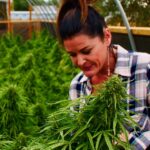 Kat King lives and breathes legacy with Petal Consultants. A lifelong consumer, she first tried her hand at growing cannabis when she moved from her home state of Mississippi to Colorado in 1992. After relocating to Los Angeles, King spent the next two decades overseeing several large-scale cultivation facilities, leading to a felony charge. Eventually, King’s record was expunged and she returned to the Magnolia State as a consultant for the South’s fledgling cannabis industry, bringing her story completely full circle.
Kat King lives and breathes legacy with Petal Consultants. A lifelong consumer, she first tried her hand at growing cannabis when she moved from her home state of Mississippi to Colorado in 1992. After relocating to Los Angeles, King spent the next two decades overseeing several large-scale cultivation facilities, leading to a felony charge. Eventually, King’s record was expunged and she returned to the Magnolia State as a consultant for the South’s fledgling cannabis industry, bringing her story completely full circle.
What do you love most about growing cannabis?
“My favorite part of cultivating is watching the girls mature into ladies and thrive. That feeling when you first lay eyes on them each day.”
Karen Rumerics Averil, the boss, Cannaflage Designs, Oregon
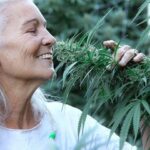 Growing cannabis is no easy feat, but Karen Rumerics Averil has it down to an art. She and her husband have been growing for over 40 years, graduating from a closet to a large garden over time, favoring berry-forward strains mixed with landrace genetics. While not a commercial grower, she instead donates her excess flower and handmade oil, topicals, and edibles to patients and veterans in need. In an effort to show the world the true beauty of the bud she loves, Rumerics Averill launched Cannaflage Designs, a line of cannabis-themed apparel, home decor, and gifts. A percentage of sales go to a variety of causes, including K9 rescue, ocean conservation, and pediatric cannabis patients.
Growing cannabis is no easy feat, but Karen Rumerics Averil has it down to an art. She and her husband have been growing for over 40 years, graduating from a closet to a large garden over time, favoring berry-forward strains mixed with landrace genetics. While not a commercial grower, she instead donates her excess flower and handmade oil, topicals, and edibles to patients and veterans in need. In an effort to show the world the true beauty of the bud she loves, Rumerics Averill launched Cannaflage Designs, a line of cannabis-themed apparel, home decor, and gifts. A percentage of sales go to a variety of causes, including K9 rescue, ocean conservation, and pediatric cannabis patients.
What inspired you to become a caregiver?
“When Oregon approved medical in 1998, we realized that we could help others and started growing for 12 other patients. During that time, we saw the benefits our patients received by reducing their dependence on pharmaceuticals and increasing mobility. One patient had not been able to bead or do leather work for 20 years, yet two years after we started growing medicine for him, he was able to continue his passion. Seeing the medicinal benefits is so rewarding. My husband has been able to go off Oxycontin, Vicodin, and Enbrel as a result, and I take no pharmaceuticals at all.”
What’s your favorite part of cultivating?
“My favorite part of cultivating is after all the hard work is done and I can wander among the plants surrounded by butterflies, dragonflies, and ladybugs, watching them grow and using all my senses to appreciate the plant. We grow outdoors only so our plants receive full sun, fresh air, and clean water.”
Lorelie Sandomeno, founder, co-owner, and CEO, Sunrise Mountain Farms, California
 Like so many other growers, Lorelie Sandomeno has a passion for plant medicine. She found success therapeutically with cannabis 20 years ago and found herself fascinated with the diverse array of benefits each unique cultivar can offer. Wanting to share her knowledge of terpenes, cannabinoids, and the synergies they share, Sandomeno’s Sunrise Mountain Farm focuses less on high-potency THC breeds and more on medicinal blends including strains high in CBD and other minor cannabinoids.
Like so many other growers, Lorelie Sandomeno has a passion for plant medicine. She found success therapeutically with cannabis 20 years ago and found herself fascinated with the diverse array of benefits each unique cultivar can offer. Wanting to share her knowledge of terpenes, cannabinoids, and the synergies they share, Sandomeno’s Sunrise Mountain Farm focuses less on high-potency THC breeds and more on medicinal blends including strains high in CBD and other minor cannabinoids.
What do you love about cultivating cannabis?
“Communing with the plant. Pheno-hunting and creating new cultivar combinations is fun and rewarding. Nourishing vibrant living soils to provide the most abundant nutrient uptake for our plants so they may reach their fullest potential under the full spectrum of sunshine. Learning about and being creative with natural farming techniques, making our own plant nutrients, and working to create a healthy, balanced ecosystem are also my favorite parts of cultivating.”
Comments
Post a Comment